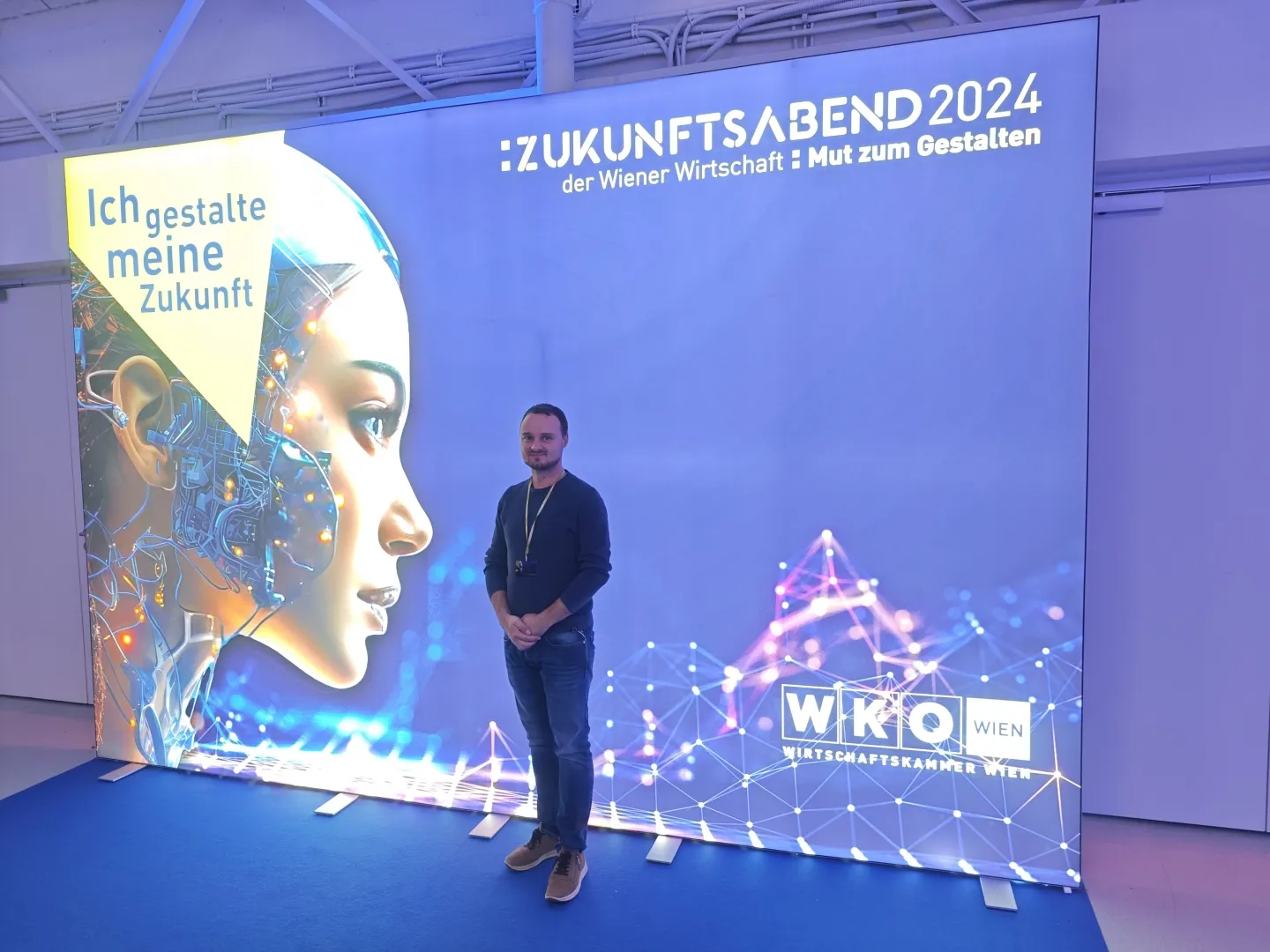Conference on the future of artificial intelligence in Vienna

Organized by the Vienna Chamber of Commerce (Wirtschaftskammer Wien), a large-scale conference was held at the end of November 2024, titled “Wie viel Mensch verträgt die Zukunft?” or “How Much Is Humanity Needed for the Future?” As the title suggests, the focus was on the role of artificial intelligence. Our faculty was represented at the conference by Assistant Professor Dr. Ferenc Bakó.
The keynote speaker of the conference evening was Sven Gábor Jánszky, a Hungarian futurist, founder and head of 2b AHEAD ThinkTank, which is Europe's largest independent trend research institute. Throughout his career, he has produced more than 150 scientific studies and trend analyses that have influenced corporate strategies in various industries. The main point of his presentation highlighted that the rise of artificial intelligence (AI) and automation is fundamentally transforming the world of work, social structures, and the dynamics of human relationships.
The main ideas of the presentation can be summarized in the following points:
- On the topic of the transformation of the relationship between technology and humans, Jánszky emphasized that technology is taking over the role of human labor in more and more areas, but human values, such as creativity, empathy, and ethical sensitivity, remain indispensable. This “human factor” cannot be fully replaced.
- Regarding ethical and social challenges, the speaker explained that technological advancement raises not only economic but also significant ethical questions. In the application of AI, dilemmas such as data privacy, algorithm transparency, and their role in decision-making must be faced. Society needs to be prepared to find answers to these questions and responsibly guide the changes.
- Another important point of the presentation was the role of humans in the digital age. Jánszky emphasized that the success of the future depends on how well human values can be integrated into technological innovations. The presentation highlighted that humans are not passive participants in the processes but active shapers of the digital future.
- However, it is important not to lose sight of a positive vision for the future. The speaker painted an optimistic picture in which technology works for humans, not against them. The opportunities created by AI and automation can elevate the quality of life to a new level, provided that appropriate social regulations and collaborations are established.
The message of the presentation is clear: technological progress cannot be stopped, but human responsibility and value-driven thinking are essential for its guidance and ethical use. The speaker called the participants' attention to the fact that human abilities and values are not lost during technological development but become even more important in shaping the future.





